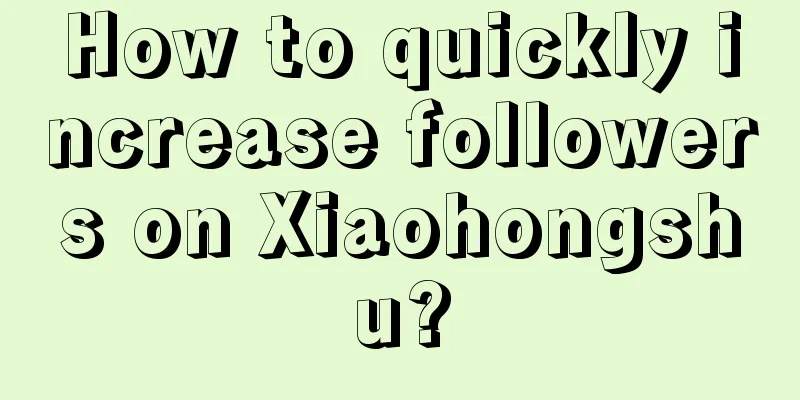80% of affected users may abandon iPhone: Are US companies the biggest victims of the "WeChat ban"?

|
Trump's blockade policy against Chinese technology companies is still deepening, but its latest move seems to be "shooting itself in the foot." On August 7, US President Trump signed an executive order. Most media interpreted this executive order as any transaction between US companies and WeChat and its parent company Tencent will not be allowed to proceed for up to 45 days, otherwise they will be sanctioned by this order.
However, Sohu Technology checked the original text of the instruction and found that its expression was deviated during the translation process. The original meaning was "U.S. entities or individuals are not allowed to conduct transactions related to WeChat with Tencent and its subsidiaries." That is to say, on the one hand, WeChat is not completely banned, and on the other hand, the impact on Tencent is limited to WeChat-related matters. Sam Dean, a reporter from the Los Angeles Times, also quoted a White House official on the 7th as saying that Trump's executive ban on WeChat is limited to transactions related to WeChat and does not involve Tencent's gaming business. Of course, the executive order is still vague. There is a clause in the original text that states that the U.S. Department of Commerce is responsible for defining "transactions that should be prohibited" after 45 days. Before the exact definition is released, there are still many unanswered questions, such as whether WeChat's listing on the App Store constitutes a transaction? If it needs to be removed from the shelves, does it need to be removed worldwide? Does WeChat Pay constitute a transaction? On this basis, if we explore the impact of the WeChat ban on both China and the United States, we will find that American companies have suffered more damage. Apple is the first to bear the brunt For Chinese users, WeChat has become the "infrastructure" of every mobile phone. When WeChat and Apple must be separated, it is inevitable that some users will give up using iPhones. Zhang Yi, CEO and chief analyst of iMedia Research, told Sohu Technology that once the decree is fully implemented, objectively speaking, the first victim will be Apple. "We have conducted some follow-up surveys on users before. According to the survey, if they cannot use WeChat, or even if there are a series of bans on other apps in the future, about 80% of users will give up using iPhone," said Zhang Yi. On August 10, Apple industry chain analyst Ming-Chi Kuo published a forecast report on his WeChat public account "TF International", saying that the US government's ban on WeChat has the greatest impact on the iPhone among Apple's hardware products, and Apple may be forced to remove WeChat from the App Store. In the pessimistic and optimistic scenarios, it is estimated that iPhone shipments will decline by 25-30% and 3-6% respectively. In a pessimistic scenario, the App Store will remove WeChat worldwide. Kuo predicts that Apple hardware product shipments in the Chinese market will decline significantly, with annual iPhone shipments set to fall by 25-30% and other Apple hardware devices, including AirPods, iPad, Apple Watch and Mac, set to fall by 15-25%. If the App Store only removes WeChat in the United States, the impact will be relatively small. According to data released by Statista, a US data statistics service provider in September 2019, the usage rate of WeChat is only 0.79%. Kuo Ming-Chi estimates that iPhone shipments will be reduced by 3-6% as a result, and other Apple hardware devices, including AirPods, iPad, Apple Watch and Mac, will be reduced by less than 3%. The importance of the Chinese market to Apple is self-evident. According to The Economist, Apple's total sales in China last year were US$44 billion, and China is the third largest contributor to its profits. The current European and American markets are already saturated for Apple, while in China, Apple only accounts for about 9% of the Chinese smartphone market, so there is still ample room for growth. Data shows that in the second quarter of this year, Apple's global sales fell by 25%, and many markets showed a downward trend, but the Chinese market still grew strongly. According to the latest data released by Shanghai CINNO Research, iPhone sales in the Chinese market reached 13 million units in the second quarter, a year-on-year increase of 62%. In comparison, Huawei's year-on-year growth was 14%. In addition, further signals indicate that Apple is raising the priority of the Chinese market. On the 8th, some media reported that Apple iPhone 12 may support the Beidou navigation system and is currently undergoing corresponding debugging. It can be seen that Apple is actively making compromises for the Chinese market, and Trump's executive order has put it in a dilemma. It is worth noting that the negative impact of the government order on Apple is not limited to the App Store. In addition to having a broad user base in China, almost all of Apple's key manufacturing and assembly partners are also in China. The ban on WeChat will undoubtedly affect communication with these employees and partners. After Tim Cook took over, Apple's success is almost entirely due to its expansion into the Chinese market, not only in terms of users but also in terms of manufacturing hubs. And Trump's ban may not only force Apple to remove WeChat from its app store, but may also fundamentally change the way Apple develops and sells new products in the future. "Whether it is for consumers or employees, or for communication between upstream and downstream industrial chains, WeChat is still a very mainstream channel. If the ban affects the efficiency of communication, it will be a big blow to the US," said Zhang Yi. In fact, WeChat is not only the preferred information platform for Apple, but also for many American engineering teams that assemble products in China or Asia. Manufacturers rely on WeChat to communicate directly with American engineers who are responsible for designing new products and Asian manufacturing teams that build products. Many electronic product manufacturers have suspended production due to the epidemic, resulting in serious supply chain disruptions within two to three months. If WeChat is blocked, it will undoubtedly be a further blow to Apple as its products are about to be launched in the fall. US companies caught in the crossfire In the larger US market, the butterfly effect brought about by Trump’s WeChat ban is also likely to spread. Reuters reported that as Tencent assesses the possible impact of the US decision to ban its messaging app WeChat on its business, experts said that American companies in China may accidentally be hurt due to their heavy reliance on the app. For example, American brands big and small, from Nike, KFC, Starbucks to Amazon, use WeChat's embedded "mini program" software to facilitate transactions and attract Chinese consumers. The Washington Post speculated that the ban may mean that WeChat will not appear in Apple or Google app stores, or that American companies will not be able to purchase advertisements on related apps. Zhang Yi told Sohu Technology that according to information previously learned by iMedia, US companies do not place many advertisements through WeChat, and the main users of WeChat overseas are still Chinese and related close groups, so relatively speaking, the impact of advertising on US companies is not that big. He said that the biggest impact is on transactions within WeChat. "Many products of US companies collect payments through WeChat, and then acquire customers through mini-programs, etc. This impact may be fatal. If Trump's order is fully implemented, it is conservatively estimated that US companies will lose between 60 billion and 100 billion US dollars each year." The Daily Telegraph recently reported that given the popularity of WeChat Pay in China, American corporate giants including Starbucks, KFC, Disney and McDonald's are now facing a question as to whether the White House's move will hinder their business in China. After reaching saturation in the Western market, the Chinese market has become increasingly important for these companies. For example, KFC began using WeChat in 2018 to reduce customers’ waiting time; visitors to Hong Kong Disneyland can pay through WeChat; and Starbucks recently launched a WeChat mini program. Some experts believe that banning US companies from using WeChat and WeChat Pay could put technology companies such as Apple at risk of losing a large number of customers. From the perspective of capital, Zhang Yi told Sohu Technology: "I think his (Trump's) counterclaims are probably not from Tencent, but from the United States and commercial enterprises. A very important point is that Tencent's largest shareholder is South Africa's MIH Group, which holds 33.93% of the shares, and a large part of South Africa's MIH's shares are from American capital. So theoretically speaking, if Tencent is blocked, American capitalists with a market value of trillions will also be greatly affected." The threat to Tencent is limited for now According to the description in the decree, restrictions on transactions are limited to those related to WeChat. Many industry insiders interviewed believe that Tencent is relatively less affected. Securities analyst Wang Xueheng published a report on the 10th, pointing out that in 2019, Tencent's total overseas revenue was 16.7 billion yuan, and it is estimated that overseas game revenue exceeded 14 billion, that is, overseas non-game revenue including advertising was about 2.7 billion yuan. Tencent's total revenue in 2019 was 377.3 billion yuan. Assuming that 60% of overseas non-game revenue comes from the United States, then in 2019, US non-game revenue only accounted for 0.4% of the company's total revenue. In the short term, the impact on the company's profits is very small. As for Tencent's overseas game business, WeChat does not play a large role as a distribution channel. Zhang Yi told Sohu Technology: "Tencent's overseas games are mainly promoted through several leading overseas social media and telecom operators. In fact, WeChat users overseas are not the main consumer group of Tencent games. The main reason is also related to its coverage." Based on this, WeChat's influence on game marketing is limited. However, the "US mobile app stores" mentioned in the statement are not clearly defined. In the case of vague definitions, it is possible that the ban will affect a wider range in the future, such as prohibiting Tencent from independently publishing games in the United States. In this case, the top overseas game "PUBG Mobile" will be affected, but according to the model of Guosen Securities, "PUBG Mobile" will only account for 1% of Tencent's total revenue and profit from 2020 to 2022. As of press time, Tencent's market value has evaporated by 500 billion yuan, falling from a high of 5.3 trillion yuan to 4.8 trillion yuan. The stock market volatility caused by market sentiment includes investors' concerns about the uncertainty of Tencent's future. However, compared with Tencent's short-term pain, American companies across the ocean may become the biggest victims of the "WeChat ban." |
<<: iOS 13.5 Blizzard new jailbreak tool with built-in Zebra Store
>>: iOS WeChat 7.0.15 update is launched: chat menu has a new UI, tap to add bubble reminders
Recommend
Introduction and display styles of iQiyi advertising!
1. Introduction to iQiyi Promotion Platform As a ...
Revealed! AI is the "culprit" of Internet junk content production? | Digital Literacy
Review expert: Liu Xiangquan, Director of the Rob...
Developers say: What should we do as the Web becomes more and more complex?
"Is there a word (besides "privilege&qu...
Summer is hot! Doctor runner unlocks the secrets of scientific fluid replenishment before and after exercise
Written by Fu Jingbo (Chief Surgeon of Peking Uni...
Why do I always want to stick my feet out of the quilt when I sleep?
It is said that "cover the belly button and ...
Hu Chao's breakthrough as gold medal sales champion
Brief introduction of Hu Chao's gold medal sa...
Does it require any handling fees to apply for a Baidu account across regions or to promote through the Baidu framework account?
For those who do Baidu bidding, they all face a p...
Tesla's alternative "PUBG", players can enter the game to experience Model Y's autonomous driving
In the past few years, Tesla has been committed t...
An inch longer is an inch stronger. How can you stretch to be healthier?
There is an old saying that "an inch longer ...
In-depth analysis of information flow delivery, the key method to rapidly increase ROI
What exactly is advertising, trying to convince y...
Unboxing the 1,288 yuan AirPods headphones: Apple’s new future!
Although Apple's AirPods arrived almost two mo...
Responsible AI governance requires collaboration
Artificial intelligence is developing rapidly, bu...
The top ten problems in app promotion: sometimes it’s not your fault if the sales volume cannot be increased!
Friends often ask, " I made an App , how do ...
Why do fireflies flash synchronously?
In the wild, fireflies will always flash spontane...
Why do some companies keep saying that they value operations but always fail to do so?
Operations work is very detailed, and some company...









